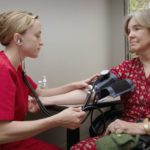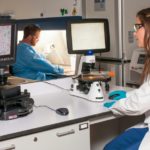
Answering the Question: Walk me through your resume.
When it comes to interviewing, there are many types of questions that can be asked.
One question concerns your curricula vitae (CV) or resume.
‘Walk me through your resume.’
Sounds easy enough, right?
For some people, it might be easy to explain work history. You may have no trouble with it.
For others, it might cause them to panic or feel nervous. You might not know where to start.
- If your resume is too big, you might not know what to include.
- If your resume is too small, you might worry that you have nothing to talk about.
Here are some tips to help you answer the question,
‘Walk me through your resume.’
First – Briefly Introduce Yourself
Start with saying your name.
It is important to state what year you are in after graduating from medical school.
This would be termed Post Graduate Year (PGY).
For example, if you finished medical school one year ago, you would be PGY 1.
Next, you can say where you are from and where you live.
Now, where you are from can mean many different things. You might have been born in one place, moved to another place, and went to university in another. After finishing university, you probably live somewhere else. For this response, it is best to answer – the place you grew up in and the place you currently live.
Medical Education
Now, you can move on to your medical education experience.
Your high school education is generally not something that interests a hospital.
You can mention your medical school and where it is located.
You can explain the general length of medical school.
This is important if medical education in your country is different from the United States.
The US system is 4 years of medical school. This follows 4 years of undergraduate education.
You can also highlight if and when you took licensing exams for your country and for the US (USMLE series).
It is important to be proactive and address anything that you did in your medical education experience.
This includes talking about observerships, externships, clinical experience and any overseas experience you have had.
When talking about them, it is important to highlight what you learned from those experiences.
If you do not have any overseas experience, it is important not to worry. You can explain that you are looking for experience outside.
If you have the chance to do so, you can look for partnership programs with your hospital or university. Many externships or observerships last from one week to several months.
Medical Residency
You can then naturally move to talking about your residency experience.
You should mention your residency period. Let’s say, from May 2018 to April 2020.
You should mention the hospital and city.
Then you can explain what residency position you held and what you did. This includes rotations, community programs (local hospitals, clinics, special needs facilities, home visits, flying doctors, etc.).
You can mention what you became comfortable with – procedures, examinations, medicines.
Current Position
If you have completed residency or the residency equivalent, you can move on to your current position.
You should mention the hospital and the location.
You can then mention your current position and what your role and duties are.
If you have any training responsibility, it is a good time to mention that in your interview.
Importantly, you should talk about why you chose that hospital and position.
It is easy to say something like, ‘Well, I did my residency here, so I am comfortable with this hospital.’ However, that does not sound like a professional, career-oriented statement.
You need to highlight the strengths of that hospital and what you have learned.
Memberships and Publications
You should finish off with talking about professional memberships and publications.
For your professional memberships, this includes medical associations in you country that are required and/or expected.
If you can, you should give an equivalent to the US version – XX is equivalent to the AMA in the US.
Mention what research you have done and papers you have published.
You can talk about who you worked with in doing your research.
If you have no publications or research, you can mention research topics that interest you depending on your specialty.
Process
It seems like a lot to process at first.
This type of question – walk me through – is basically a way for an interviewer or interviewers to hear about your background all at once.
The interviewers can get a bigger picture of who you are and your background from this question.
It is important to be prepared for it.
As stated in previous posts, it is important to not have a rote, memorized answer. You should be comfortable with your resume/CV and your work experience enough to talk about it.
Final Notes
The interview is part of the process of beginning your work life in the United States. Indeed, this guide can be used for not only the US, but also for other countries.
There are many other questions in addition to walk me through your resume. We will take a look at other questions later in this series.
The main idea is this:
Preparation is key.
To get started, review your resume/CV and think about what you learned in all of those experiences.
A good idea is to talk with a colleague about his or her interview experience. If you have any colleagues who have worked in the US before, it is a good chance to get to ask advice from them.
Be confident when talking about them. Remember, confidence is key and you can gain much by showing a confident person who is willing to take on new challenges.








